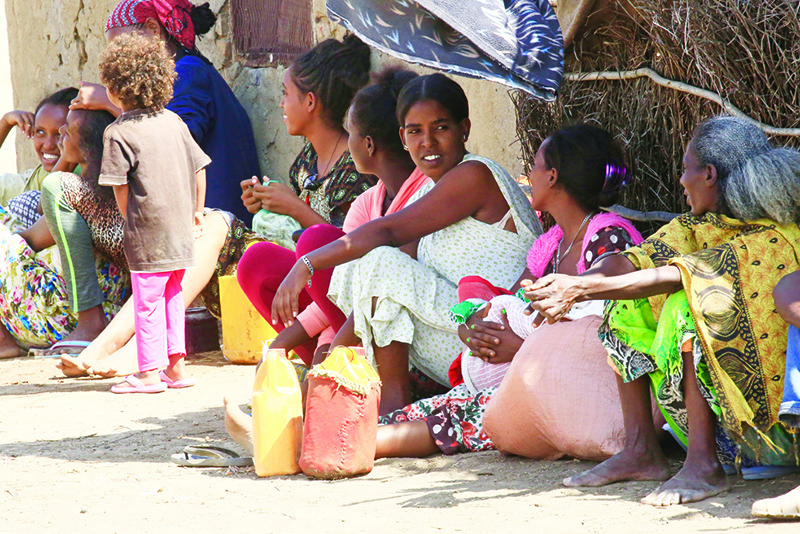
ADDID ABABA: Heavy shelling struck the capital of Ethiopia’s Tigray region yesterday, the local government and humanitarian sources said, as the city of half a million braced for an attack against leaders of the regional ruling party. Ethiopia’s military “has started hitting with heavy weaponry and artillery the center of Mekele”, the local government said in a statement carried by Tigrayan media-a claim confirmed by two humanitarian officials with staff in the city.
“The Tigray regional state calls upon all who have a clear conscience, including the international community, to condemn the artillery and warplane attacks and massacres being committed,” the statement said. Prime Minister Abiy Ahmed, winner of last year’s Nobel Peace Prize, announced November 4 he had ordered military operations against Tigray’s ruling party, the Tigray People’s Liberation Front (TPLF).
More than three weeks of fierce fighting has left thousands dead “including many civilians as well as security forces”, the International Crisis Group said Friday. Tens of thousands of refugees have streamed over the border into Sudan, and rockets launched from Tigray targeted the capital of neighboring Eritrea for a second time Friday night, exacerbating fears the conflict could draw in the wider Horn of Africa region.
Abiy announced Thursday that he had ordered a “final” offensive on TPLF leaders, and Ethiopia’s military says it has encircled the city. A communications blackout in Tigray has made it difficult to verify claims from both sides about how the fighting is going.
A spokesperson for a crisis committee formed in response to hostilities in Tigray did not immediately respond to a request for comment yesterday about reported shelling in Mekele, which has already been hit by air strikes. A spokesperson for Abiy’s office referred AFP to past statements indicating military operations would be undertaken “strategically” to avoid undue harm to civilians.
Eritrea’s capital came under fire from Ethiopia’s breakaway Tigray region Friday, raising fears that Ethiopia’s internal conflict could spread as leader Abiy Ahmed resisted calls for dialogue. Global concern remains centered on the half a million residents of Mekele, Tigray’s regional capital, which the army says it has encircled ahead of the threatened attack. World leaders and human rights groups have warned such a strike could violate rules of war and were calling for urgent mediation.
Pope Francis was among those worried about the intensifying fighting, growing loss of life and displacement, Vatican media head Matteo Bruni said Friday. Abiy announced military operations in Tigray on November 4 after months of friction between his government and the TPLF, which dominated Ethiopian politics for nearly three decades before Abiy took office in 2018.
The prime minister has refused to negotiate with the TPLF and dismissed calls for dialogue as “interference” in Ethiopia’s internal affairs. On Friday he met with three African ex-leaders-Joaquim Chissano of Mozambique, Ellen Johnson Sirleaf of Liberia and Kgalema Motlanthe of South Africa-dispatched this week by the African Union as mediators.
‘Enforce rule of law’
In a statement issued after their meeting in Addis Ababa, Abiy said he appreciated “this gesture and... the steadfast commitment this demonstrates to the principle of African solutions to African problems”. Even so, the government has a “constitutionally mandated responsibility to enforce rule of law in the region and across the country,” his office said in a statement.
“Failure to do so would further a culture of impunity with devastating cost to the survival of the country,” it said. UN chief Antonio Guterres welcomed the talks with the AU envoys and urged all parties to “peacefully resolve the conflict”.
The UN Secretary-General also stressed the need “to ensure the protection of civilians, human rights and access for humanitarian assistance to the affected areas”. The Tigrayan government, meanwhile, said Friday the federal army was bombarding towns and villages and inflicting heavy damage, although it did not specifically mention Mekele. — AFP




